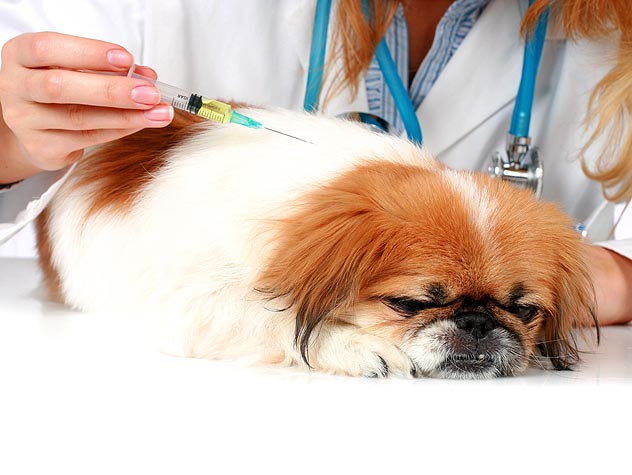Dog Vaccinations - How To Choose The Right Animal Hospital
For any new pet owner and the owners of dogs, vaccines are often a matter of some confusion. Which vaccines is the dog supposed to get? What are the vaccines for? Will my dog react badly to them? These are all questions frequently asked.
Puppies get some natural immunity from their mother's milk, but that tapers off as they get older. Here's where you and your vet come into the picture. You need to get started with puppy vaccinations when your little guy is about five or six weeks old. Your vet will give him his puppy shots over several weeks, up to about sixteen weeks. After that, booster shots will provide the continued protection your dog needs.
Most veterinarians will advise dog owners to give the DHLPP vaccination once their puppies are weaned off their mother's milk. This vaccine covers several fairly common canine conditions: distemper, hepatitis, leptospirosis, parvovirus, and parainfluenza. Depending on the veterinarian and the geographical location, your dog may be given only some of these vaccinations. Typically, all five, or a combination of them, are lumped together in a single shot that is administered subcutaneously, or under the skin, once every two or three weeks for about two months.
But when you are deciding on which animal hospital to take your dog, be careful which facility you choose. Not all veterinarians offer the same level of service. The following tips should help you to find a reputable animal hospital for your dog vaccination program and other treatment.
Firstly, you might want a pet clinic that provides not only vaccinations, but also takes care of wellness exams, parasite evaluation and prevention, and the treatment of sick pets. The facility should be supported by a parent hospital for intensive care and surgeries. So that you can get the best treatment and also keep a check on your dog's health. And then the staff should be knowledgeable, friendly and passionate about their work. Your canine should always come first and receive undivided attention. Also, check whether the environment is inviting so your furry friend feels comfortable. And lastly, the cost or fee of their service must be reasonable and affordable.
Each dog disease can be very difficult to manage, and vaccination is your best bet to avoid them together. Unfortunately, some dogs do experience adverse reactions to some of these vaccines. For that reason, many vets have moved from giving this shot yearly, to giving it every three years. In the end, check regularly with your vet and animal hospital which covers the best for your dog, and keep track of any program for the best health of your dog.




Comments
Post a Comment